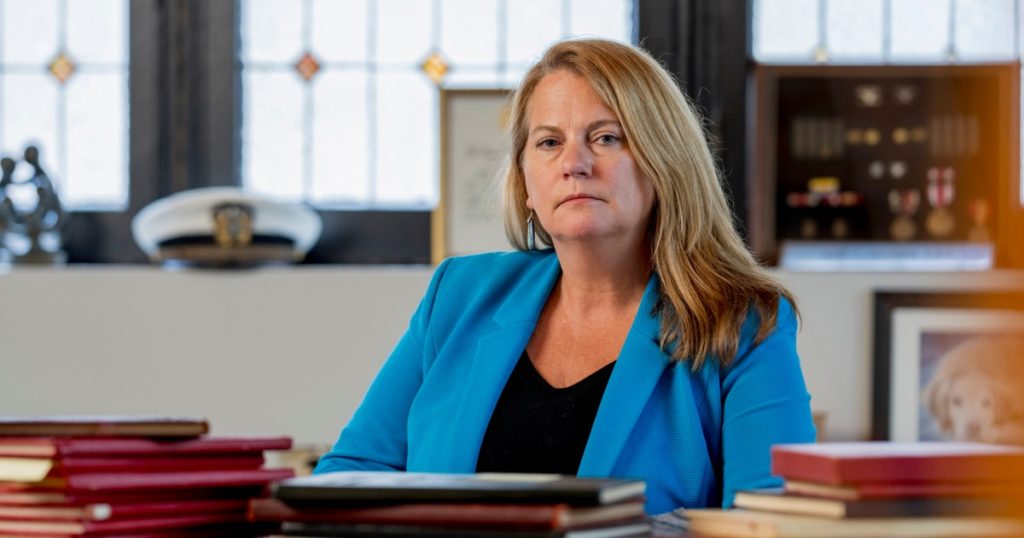Leo Case, a World War II tank commander and recipient of the Navy Cross for valor, survived the battle of Iwo Jima only to die of multiple cancers at the age of 58. He was one of the first service members exposed to a contaminated water supply at Camp Lejeune, a Marine Corps training facility in North Carolina. His granddaughter, Jessie Hoerman, an attorney in St. Louis, sought to prove that his illnesses were due to his exposure at Camp Lejeune. She spent two years collecting records and materials to support her family’s claim, amassing an archive that she believes could help other veterans and their families in similar situations.
Hoerman’s efforts have resulted in what she believes is the largest private collection of Camp Lejeune materials, including muster rolls, phone directories, and yearbooks. She plans to share these documents with other veterans named in her findings to help them bolster their own water contamination cases. Her mission has become personal as she seeks to give back to these families and provide them with the hard copies of the documents that she has gathered.
Camp Lejeune was the site of one of the largest water contamination cases in U.S. history, affecting up to 1 million people who lived or worked at the base from 1953 to 1987. The contamination stemmed from multiple sources, including waste from a nearby dry-cleaning facility and leaks from underground storage tanks on the base. The water was found to contain chemicals such as trichloroethylene, tetrachloroethylene, vinyl chloride, and benzene, which have been linked to various health problems, including cancer and cardiac defects.
Leo Case succumbed to bowel, colon, liver, and lung cancer in 1976, and a postmortem examination conducted by the Veterans Administration hospital in Syracuse, New York, found no evidence of any hereditary or infectious disease. Hoerman’s research into her grandfather’s history was prompted by the expansion of benefits to veterans exposed to toxic substances like burn pits under the PACT Act of 2022. She has been dedicated to uncovering the truth about her grandfather’s illnesses and is now committed to helping other veterans in similar situations seek justice and compensation for their exposure to contaminated water at Camp Lejeune.
The documents and records that Hoerman has collected are crucial in supporting the claims of veterans and their families who have suffered from the effects of water contamination at Camp Lejeune. By sharing her findings with others affected by the toxic water supply, she hopes to provide them with the evidence they need to seek recognition and compensation for the illnesses they have endured as a result of their service at the base. Hoerman’s dedication to her grandfather’s memory and her commitment to helping others in similar situations highlights the importance of continued advocacy and support for veterans affected by environmental hazards during their military service.
The legacy of Leo Case, a hero of WWII and a victim of the contaminated water at Camp Lejeune, lives on through his granddaughter Jessie Hoerman’s advocacy and research efforts. By uncovering the truth about her grandfather’s illnesses and gathering evidence to support the claims of other veterans affected by the water contamination, Hoerman is ensuring that their stories are heard and their sacrifices are acknowledged. Through her work, she is providing a voice for those who have suffered from the consequences of toxic exposure during their military service and fighting for justice and recognition for their service and sacrifices.


